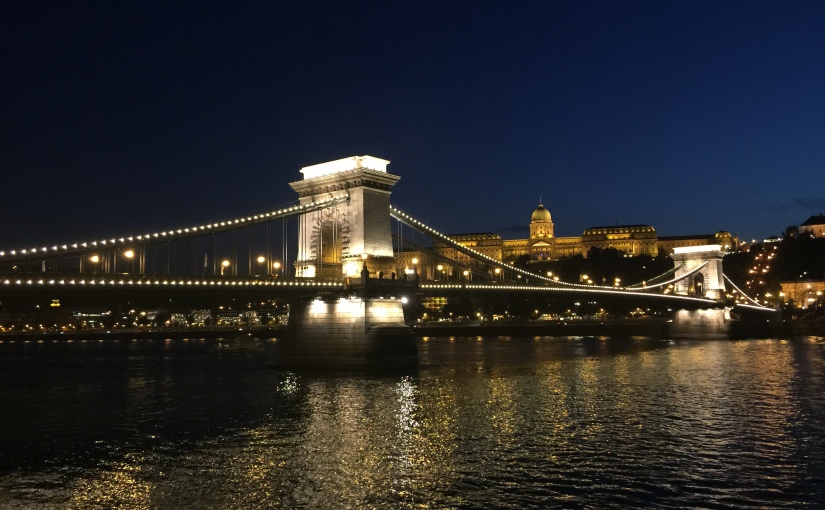A few years back when I was still in Europe, people were persuading me not to go to Budapest since we’d heard news that the city was flooded with refugees seeking asylum from war-torn Syria. But I had roots there and I’d never been as to close to it as I was then. It was only a 7-hour train ride from Prague, so I decided to go.
The roots I’m talking about are through my grandfather on my mother’s side. Though I never met him, I feel like I’ve known him all my life through the stories I’ve heard and through the music–the Hungarian violin and the old gypsy csárdás, which are a type of folk dance native to Hungary made popular long ago by the Romani gypsies.
Whether it takes me to Castilla or Budapest, it seems I’m guided by that music and the unrelenting thirst for movement and experience it seems to inspire. Here I was now, years later, paying homage to my own gypsy blood, riding a train and vagabonding through Europe for close to a month already, finally making my way to a place–much like Castilla–that felt like my homeland in more ways than one.
When the train pulled in to the station I looked out the window and caught my first sights of the city. I’ll admit, I half-expected to see angry mobs raising all sorts of hell like it was the Bastille at the start of the Revolution.
Yet as I looked out, I saw nothing particularly remarkable. The station was quiet. Nearly empty. I stepped outside and saw fellow passengers leaving the train, some being greeted by friends and loved ones. I saw a few kids hanging out by the cafe and a few more outside, skateboarding around the courtyard. Whatever chaos had been unfolding in the preceding days and weeks had gone now.
I thought for a moment about the media and it’s tendency toward sensationalism, as it sometimes ignores other news for the sake of news that will keep us interested or drive up their ratings. I do worry whether it might become the boy who cried wolf, if it hasn’t already; as today I consider those who still have trouble grasping the urgency of climate change, or COVID-19 for that matter.
In any case, however things went down here, it appeared the refugees had either moved on or disappeared into the city blending in with everyone else. They were only people with the same essential needs and aspirations as the rest of us. And the more I recognized that, the more I thought about those qualities that truly defined a country.
Was it borders, or something less tangible? Maybe something not quite set in stone but in constant motion, rooted in history but still vulnerable to change by the passage of time, or by the influence of an outside world–one that can never be kept outside for too long.
If the latter was true, then I figured countries were a macrocosm of the individual human experience, which would ultimately make borders something of an illusion.
I hoisted my bag over my shoulder and stepped out onto the streets, the sky turning a bright pink as the sun set behind the hills and day faded into evening. The air had grown cool. I could hear a violin somewhere not too far away.
